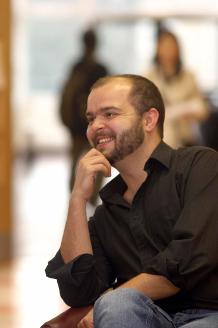Morphology
Aims
Aims
This module aims to provide an overview of the linguistic field of morphology. The module explores how morphology interacts with syntax and phonology, building on the syntax and phonology skills acquired in the first year. In addition, the module investigates the internal structure of words and introduces theoretical approaches used to analyse words. Topics covered include types of morphemes, morphological derivation, polysemy, inflection, and productivity of morphological processes.
By the end of this module, students will be able to:
- Analyse the internal structure of words in English and other languages
- Apply abstract theory to practical data
- Evaluate different morphological analyses
- Evaluate different frameworks of morphology
Prerequisites
Prerequisites
If you are currently a first-year student, you must have successfully completed:
- L09C Introduction to phonetics and phonology (LAN0009C)
- L11C Introduction to syntax (LAN00011C)
If you are currently a second-year or year-away student, you must have successfully completed:
- L110 Elementary phonetics and phonology (4111110)
- L120 Elementary syntax (4111120)
Programme
Programme
Contact hours
2 hours of lectures and a 1 hour seminar per week.Teaching programme
| Weeks 2-3 | General Introduction |
| Week 4 | Morphology and Phonology |
| Week 5 | Derivation and the Lexicon |
| Week 7 | Morphology and Meaning |
| Week 8 | Inflection |
| Week 9 | Morphology and Syntax |
| Week 10 | Morphological Productivity |
Teaching materials
- Aronoff, Mark and Fudeman, Kristen (2005). What is Morphology? Blackwell Publishers.
Assessment and feedback
Assessment and feedback
Feedback on formative work
- A bi-weekly quiz serves as formative week.
- Class feedback provided on all quizzes.
Summative assessment and feedback
- Exercises due on Friday of Week 6.
- Weight: 30%
- Written feedback will be provided within two weeks of the submission date.
- A two-hour closed exam in Week 1 of the spring term
- Weight: 70%
- Mark on university scale for whole course published in Term 2, Week 6. Exam scripts subsequently available to view (under supervision, by appointment).
Skills
Transferable skills developed in this module
All modules provide an opportunity to work on general oral/written communication skills (in class and in assessments) and general self management (organising your studies), alongside the specific skills in language or linguistics that the module teaches.
In addition, this module will allow you to particularly develop skills in problem solving: you will learn how abstract theories are formed and can then be used to classify unfamiliar problems/data. You will also learn how to present your ideas in a manner that other people can understand.
Follow this link to hear how past students use transferable skills from their degree in their current jobs.

About this module
- Module name
Morphology- Course code
L20I (LAN0020I, 4190281)- Teacher
- Term(s) taught
Autumn- Credits
20
